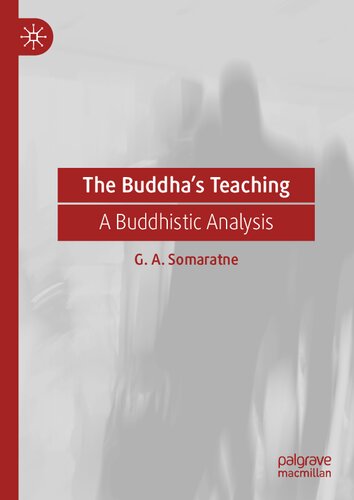

Most ebook files are in PDF format, so you can easily read them using various software such as Foxit Reader or directly on the Google Chrome browser.
Some ebook files are released by publishers in other formats such as .awz, .mobi, .epub, .fb2, etc. You may need to install specific software to read these formats on mobile/PC, such as Calibre.
Please read the tutorial at this link. https://ebooknice.com/page/post?id=faq
We offer FREE conversion to the popular formats you request; however, this may take some time. Therefore, right after payment, please email us, and we will try to provide the service as quickly as possible.
For some exceptional file formats or broken links (if any), please refrain from opening any disputes. Instead, email us first, and we will try to assist within a maximum of 6 hours.
EbookNice Team

Status:
Available4.6
17 reviewsThis book approaches the Dhamma, the Buddha’s teaching, from a Buddhistic perspective, viewing various individual teachings presented in hundreds of early discourses of Pali canon, comprehending them under a single systemic thought of a single individual called the Buddha. It explicates the structure of this thought, going through various contextual teachings and teaching categories of the discourses, treating them as necessary parts of a liberating thought that constitutes the right view of one who embraces the Buddha’s teaching as his or her sole philosophy of life. It interprets the diverse individual dhammas as being in congruence with each other; and as contributory to forming the whole of the Buddha’s teaching, the Dhamma. By exploring some selected topics such as ignorance, configurations, not-self, and nibbāna in thirteen chapters, the book enables readers to understand the whole (the Dhamma) in relation to the parts (the dhammas), and the parts in relation to the whole, while realizing the importance of studying every single dhamma category or topic not for its own sake but for understand the entirety of the teaching. This way of viewing and explaining the teachings of the discourses enables readers to clearly comprehend the teaching of the Buddha in early Buddhism.